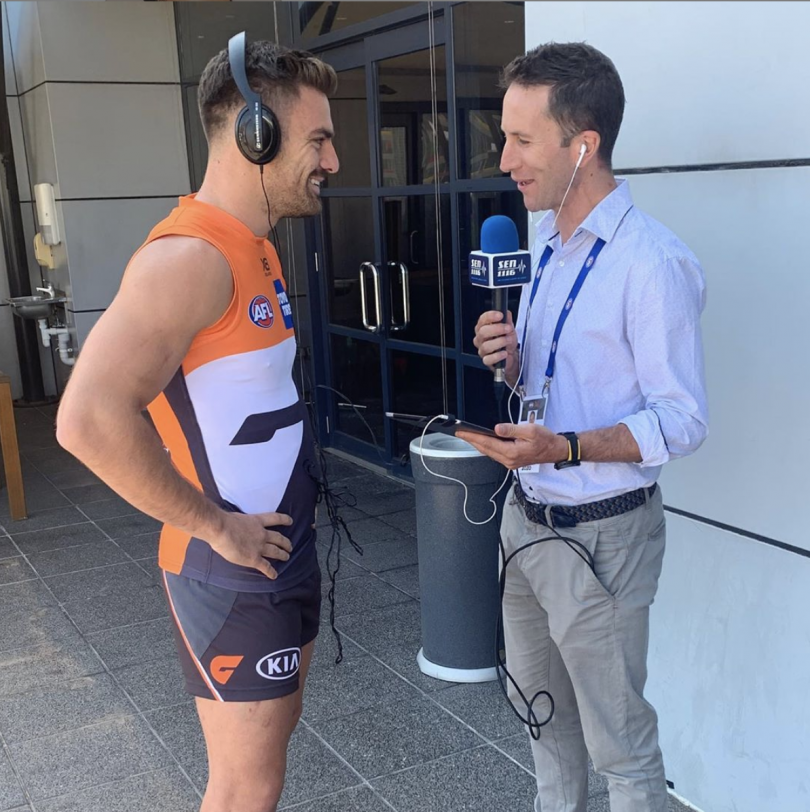Sports journalist Sam Edmund says the media-on-media commentary in Australian football plays an important role in generating discussion and debate during the sport’s absence.
Edmund, SEN radio’s chief sports reporter, concedes it’s not an ideal form of journalism but given the current circumstances, it helps maintain a connection with fans who yearn for the game to return.
“It’s not what you want out of the journalism industry, but these are unusual circumstances,” he says.
“[There are] people at home who are just trying to cling to some sort of normality in their lives, and for a lot of those people that normality is football and the conversation around football.
“I think it’s important to keep some element of conversation going on the game and some of the bigger issues – if that means disagreement and debate then so be it.”
The former Herald Sun journalist says the size of the football industry, combined with the current lack of on-field action, leads to a news cycle dependent on television and radio programs.
“What has happened is the media fuels the media, particularly in something as incestuous as the footy industry, which isn’t a big industry,” he says.
“What is said on one show is critiqued on another show, and then that person goes back to that person, and that issue is debated for a week until we get around to the next round of shows.”

Photo by Daniel Anthony on Unsplash
But the CoVID-19 shutdown has done little to thwart the enthusiasm for football news.
TV program Footy Classified is still filmed twice a week and 24/7 news coverage continues on 1116 SEN and Fox Sports News.
Edmund says while it’s likely this media-on-media trend will continue post-pandemic, traditional football stories will always rise to the top.
“It all goes into the fodder of AFL discussion at a time when there are not that many other topics to talk about given there are no games,” he says.
“If you had a choice, and games were taking place, then you probably wouldn’t even bat an eyelid.
“It would probably still be happening but besides from the most sensationalist topics, they wouldn’t even be making headlines.”
The impact of the CoVID-19 pandemic has been felt hard by those in sports journalism, with further job losses recorded at Fox Sports News and staff being stood down across media organisations due to a lack of sporting action.
Edmund says that while he may have fewer counterparts, and the industry less news to talk about, day-to-day remains largely the same.
“I don’t think [the industry] has changed too much,” he says.
“Everyone has burrowed into the same issue which is getting the game back on track.
“This is probably when you rely on your contacts as much as anything to try and take you behind the curtain of the decision-makers.”
Coronavirus-related content first crossed over into AFL news in early March, when Sam McClure of The Age named Fremantle youngster Sam Switkowski as the first player tested for the disease.
Edmund says he wasn’t interested in pursuing the story, but the backlash directed at McClure for naming the player was over the top.
“He was just getting tested for a virus. I didn’t see it as [McClure] committing a criminal act, it was more of an ethical debate,” he says.
“For whatever reason, it didn’t tickle my fancy in a story sense, but at the same time I didn’t have an issue with him being named.”

